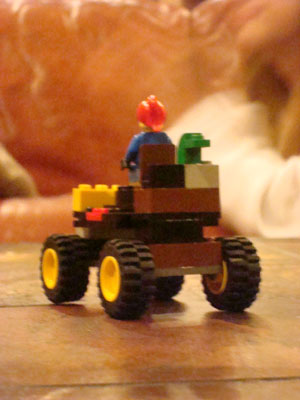All Nonfiction
- Bullying
- Books
- Academic
- Author Interviews
- Celebrity interviews
- College Articles
- College Essays
- Educator of the Year
- Heroes
- Interviews
- Memoir
- Personal Experience
- Sports
- Travel & Culture
All Opinions
- Bullying
- Current Events / Politics
- Discrimination
- Drugs / Alcohol / Smoking
- Entertainment / Celebrities
- Environment
- Love / Relationships
- Movies / Music / TV
- Pop Culture / Trends
- School / College
- Social Issues / Civics
- Spirituality / Religion
- Sports / Hobbies
All Hot Topics
- Bullying
- Community Service
- Environment
- Health
- Letters to the Editor
- Pride & Prejudice
- What Matters
- Back
Summer Guide
- Program Links
- Program Reviews
- Back
College Guide
- College Links
- College Reviews
- College Essays
- College Articles
- Back
Why Stereotypes Hurt Boys and Girls Alike
Today, I was watching My Little Pony: Friendship is Magic with my younger brother. He’s seven years old. My dad often protests his watching a girl’s show, but we find it to be lighthearted and entertaining. It consists of six (female) pony friends, who in each episode learn an important lesson about the “magic” of friendship. Overall, it’s a wholesome, funny show that we both enjoy. But today, my brother had a complaint.
“Sissy,” he asked, “Why aren’t there any boys on this show?”
“What do you mean, bud?”
“Why aren’t there any boys? I just wish there was a boy on this show.”
His simple question warranted a complex answer. I pointed out that there were a few boys on the show, such as Big Mac (an older brother to one of the main characters) and the Pony Guards at the palace. But he continued to insist, “There are no real boys on this show.”
I continued to think about our conversation long after the credits had rolled. As a little girl, I never noticed a lack of diversity on my favorite shows. I hardly took note of the gender, ethnicity, or sexual orientation of anybody, in television or real life. It wasn’t until recently that I began to realize that representation is an important issue in our society. But today, my little brother drove the point home.
Maybe I never noticed a lack of diversity as a child, but other children do, and it has an impact on them. When children see people that look like themselves, it’s a signal to them: “this is where people like you belong.” And everything, from advertisements to storybooks, tells little boys that they belong in a world of dinosaurs, not magical ponies. When children attempt to cross from their world into the other, they are isolated, and even shamed. Boys are told they are weak, and girls are stripped of their femininity, labeled as tomboys forevermore.
This practice is hurtful. Telling a boy he can’t enjoy things “for girls” is just as bad as telling a girl she can’t enjoy things “for boys.” Nobody has the right to tell a child what makes them happy. Most importantly, nobody has the right to tell a child their happiness is wrong.
I have no good answer to the question my little brother asked me. There are no boys on that show because we’ve decided that magic ponies and the color pink are things only girls can enjoy, but in reality, anybody can. The notion that happiness is gender-exclusive confines young women as much as it excludes young men, and damages everyone, regardless of gender.

Similar Articles
JOIN THE DISCUSSION
This article has 0 comments.

My opinion on the notion of gender rolls, and why they hurt everybody starting from an early age.